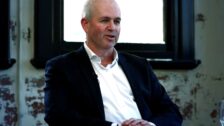Rate hike cycle overestimated: Franklin’s Canobi
Whilst there are growing signs that inflation is moderating around the world, whether in the US, UK or Australia, some 125 of the world’s central banks are current in the process of tightening monetary policy. The result, according to Andrew Canobi, Portfolio Manager of the Franklin Absolute Return Bond Fund, is that monetary policy is the “most restrictive since the GFC”.
That is truly saying something, particularly in light of the many threats to the economic backdrop, whether in the form of spiralling energy and food prices or outright lack of supply of important goods and services. At present, financial markets are predicting or ‘pricing in’ that the Australian cash rate will peak at 3 per cent in this hiking cycle, Canobi believe they have ‘overshot’ the likely peak.
In the view of Canobi and the local Franklin Templeton team, the RBA is likely to continue with their “measured approach” to raising the cash rate, which will likely peak at 1.5 per cent, according to their research. Whilst it could be slightly higher, Canobi believes it “is almost certainly not going to the level currently priced by the market.”
The outlook for cash rate movement is central to both home buyers and investors, he explained, noting that what the “RBA delivers will be the most significant driver for bond market returns over the year ahead.”
“With household debt levels at record highs and consumer confidence already weak, a cash rate as implied by current markets would likely push Australia into a housing led recession.” And this would likely be occurring with the backdrop of a ‘de facto tightening’ in the form of consumer staple inflation on non-discretionary items.
“The monetary action being taken right now will manifest itself in significantly weaker growth over the coming 12 months. The extent of monetary policy will be a determining factor” Canobi says. The potential opportunity for investors, if the team is correct, would be in slowly re-introducing duration to portfolios, as a slower than expected rate hike would likely see a fall in the 10 year bond yield once again.











